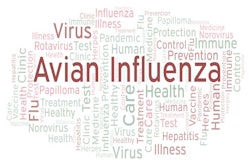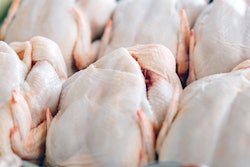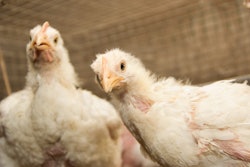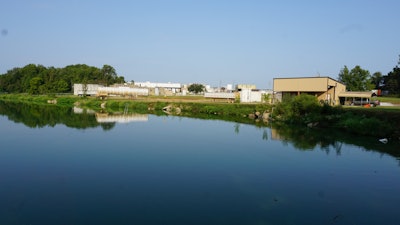
Tyson Foods Inc.’s Nashville, Arkansas, sends nearly nothing to landfills thanks to a years-long effort to recycle as much waste as possible.
For its dedication to clean water and exceptional treatment performance, Tyson Foods Inc.’s broiler and further processing complex in Nashville, Arkansas, was selected as the winner of the 2021 U.S. Poultry & Egg Association’s Clean Water Award in the full treatment category. Beyond water treatment, the judging committee for the 2021 awards was impressed with the novel approach the facility uses the minimize the waste it sends to landfills.
The full treatment category covers plants treating wastewater in accordance with the National Pollutant Discharge Elimination System which allows the facilities to discharge into a receiving stream or final land application system. To be eligible, a facility must have at least two years of no significant non-compliances, notices of violations or other types of enforcement action. Judging is based upon training, unique processes utilized for treatment, community outreach, wildlife management, water conservation and general environmental stewardship.
Wastewater treatment
Tyson’s Nashville complex processes 200,000 birds per day and further processes 1.6 million pounds of meat per day. Its water treatment operation handles an average flow of 1.2 million gallons of concentrated wastewater daily. It discharges water into nearby Mine Creek, which flows into nearby Millwood Lake and to the Red River in Texas.

Recycling efforts
Dale Patrick, Tyson Nashville’s complex environmental manager, said the facility is currently diverting 99% of its waste.
This began with a plan to reduce the material going to the local landfill. The next step was to build a separate, covered area to sort and separate all the trash. The new area includes: a compactor for unrecyclable and undesirable material; a baler for wet, contaminated plastics; a forklift and hand jack to move material around and storage for bails of plastic.
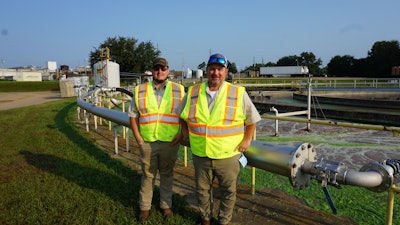
This waste reduction plan led to the reuse of 150 tons of contaminated plastics that would otherwise go to the landfill. Contaminated plastics are sent to an outside vendor, Patrick explained, who processes the plastics. After washing, shredding, drying, melting and forming the used plastics, they're usually processed into a weatherproof decking product.
Water reuse
Additionally, the facility takes steps to reduce and reuse its freshwater. Along with a plan to reduce water use as a company, the Nashville facility captures about 500,000 gallons of effluent water weekly to reuse in offal screening, washing the receiving dock and as a non-potable rinse for the floors. It also re-uses effluent water in evisceration. It uses a Safe Foods Corp. system to take process water from outside the bird washer and bird rinse cabinets and sent it back to the equipment upstream on the evisceration line. That system saves about 250,000 gallons of water per day.
The facility also pumps overflow water from the finishing chiller to the main chiller. Pre-chiller overflow water is used to pump paws back to the paw chiller.
Solids and nutrient management
Nashville’s treatment operation reduced its land application of sludge by 37% using a Fournier four channel rotary sludge press to remove water from the waste and activate the sludge removed from the bottom of the facility’s clarifier. That pressed sludge is loaded into an offal dump trailer.
The facility is also following a plan to reduce the concentration of total nitrogen and total phosphorous in the final effluent. Currently, its looking into limit the amount of poultry litter that finds its way into the water treatment process by removing litter in a dry fashion from the animal unloading areas.



